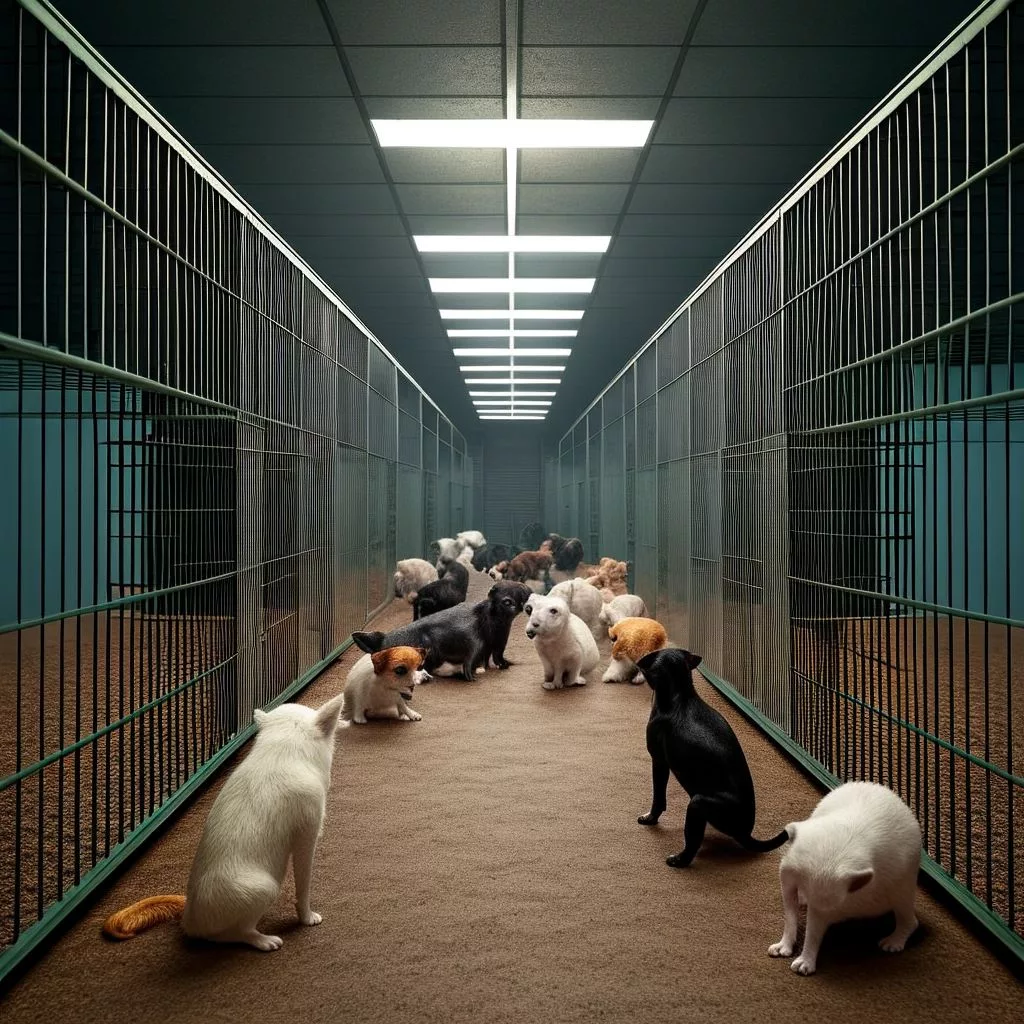When helping animals in South Africa, it’s important to choose the right organization. Look for groups that focus on spaying and vaccinating pets, have qualified vets, and are open about their finances. Be cautious, as starting a rescue is easy, but many lack proper oversight, allowing bad practices to thrive. Always visit the shelter to see if animals are cared for well and avoid any organization that pressures you for money or makes adopting pets too simple. By asking questions and being alert, you can support genuine efforts to help animals in need.
What should I look for in a reputable animal welfare organization in South Africa?
When evaluating an animal welfare organization in South Africa, consider these key factors:
– Sterilization and Vaccination Practices: Ensure they prioritize community sterilization projects.
– Qualified Veterinary Care: Verify that registered professionals provide medical services.
– Financial Transparency: Check for audited accounts and avoid personal bank transactions.
– Shelter Conditions: Visit in person to assess cleanliness and care standards.
The Paradox of Ease and Lack of Oversight
South Africa presents a unique scenario in the realm of animal welfare. While establishing a non-profit organization can be accomplished in under an hour, the lack of stringent regulatory oversight creates a problematic landscape. The only exceptions to this are the National Council of Societies for the Prevention of Cruelty to Animals (NSPCA) and its affiliated SPCAs, which are subject to rigorous scrutiny. The ease of setting up these organizations, coupled with minimal supervision, allows for ethical breaches and accountability issues to proliferate among many animal welfare entities.
Carolyn Dudgeon, who founded Paws-A-While, has experienced the darker side of this unregulated environment firsthand. She cautions the public, “People assume that anyone running an animal rescue must have the animal’s best interests at heart. But we’ve seen time and time again that’s not always the case. From overcrowding and lack of vet care to outright fraud, there are rescues that do more harm than good. It’s up to the public to ask the tough questions before they give their support.”
The reality is stark: not all that glitters in animal welfare is gold. Emotional manipulation, animal hoarding, makeshift veterinary care, and personal gain can easily be concealed behind a façade of benevolence. Being well-informed and vigilant can make the difference between supporting genuine efforts and inadvertently funding cruelty.
Red Flags: What to Watch For
One significant red flag is the neglect of sterilization and vaccinations. Genuine rescue operations typically engage in community sterilization projects that can be verified. Skipping these essential practices indicates a lack of commitment to responsible animal care.
Qualified veterinary care is non-negotiable. Organizations must employ registered professionals under the South African Veterinary Council (SAVC) to administer treatments. This ensures animals receive proper medical attention from trained and accountable individuals. Always verify that licensed practitioners are conducting any veterinary services offered by the organization.
Financial transparency is another crucial aspect. Be wary of rescues requesting deposits into personal bank accounts instead of a registered organizational account. Authentic charities should have audited bank accounts. Request recent bank account confirmation documents to ensure your contributions are genuinely aiding animals and not funding personal expenses.
The Role of Social Media and Shelter Conditions
In today’s digital age, social media platforms are vital for fundraising. However, they also provide fertile ground for deceptive practices. Organizations using manipulative tactics—such as threats to euthanize healthy animals without immediate donations—create an atmosphere of fear rather than genuine compassion. Scrutinize their social media presence for signs of staged rescues or irresponsible imagery. A lack of a website or social media presence can also be a significant red flag.
Physical verification of shelter conditions is critical. Visiting the shelter you intend to support can reveal much about its operations. Look for clean enclosures, adequate space, and thorough record-keeping. The presence of a fire safety plan and trained staff are also essential. Credible rescues should be affiliated with a veterinary welfare or private hospital facility. Public visits should be welcomed to validate their operations.
Overcrowding is another severe issue. Shelters claiming to be “pro-life” or “no-kill” often end up with more animals than they can properly care for. Overcrowded conditions lead to stress, the spread of diseases, and limited resources for food, water, and medical care. These shelters should have a compassionate euthanasia policy to prevent suffering. A lack of effort in rehoming animals is a significant warning sign.
Adoption Processes and Financial Practices
The practice of buying puppies for rescue exacerbates the problem of animal overpopulation by fueling the demand for backyard breeding. Legitimate rescues do not engage in such activities.
An overly simplistic adoption process is another red flag. Claims that every dog is suitable for any home are unrealistic. Each pet should undergo a mandatory quarantine period before adoption to prevent the spread of disease. The adoption process should include a physical home check, not just photo or video inspections. Adopting a pet should never be as simple as purchasing a loaf of bread.
Suspicious veterinary bills can indicate deeper issues. High veterinary expenses may suggest conditions arising from fights in overcrowded shelters, while unusually low bills could signal neglect of proper care. Animals should never suffer due to a lack of appropriate medical attention.
Upholding Transparency and Legitimacy
Transparency and legitimacy are paramount. The organization’s history, registration status, and willingness to provide certification—such as Non-Profit Organisation (NPO) registration and tax-exempt status—are vital indicators of legitimacy. Annual audits and fair staff compensation are also crucial. Transparency about funding sources and operations reflects a genuine commitment to animal welfare.
An organization’s vision, mission statement, and constitution should be publicly accessible. These documents offer insight into the shelter’s ultimate goals and operational ethics.
In this challenging environment, the responsibility also lies with the public. Asking questions, trusting your instincts, and reporting any suspicions of animal cruelty to local SPCAs or qualified animal welfare inspectors are essential steps. Supporting genuine rescues and stopping the funding of cruelty can significantly impact the lives of animals.
The intricate dance between compassion and caution defines the realm of animal welfare in South Africa. In a world where benevolence and exploitation often coexist, wisdom and vigilance are the greatest allies of both animals and their human advocates.
“`markdown
FAQ on Ethical Animal Welfare Support in South Africa
What factors should I consider when choosing an animal welfare organization in South Africa?
When evaluating an animal welfare organization, focus on their sterilization and vaccination practices, the presence of qualified veterinary care, financial transparency, and the conditions of their shelter. Physically visiting the shelter can help you assess cleanliness and care standards.
Why is it important to visit the shelter before supporting an organization?
Visiting the shelter allows you to see firsthand the conditions in which animals are housed. Look for cleanliness, adequate space, and a structured care plan. This visit can help you identify potential issues such as overcrowding and lack of veterinary care.
What are some red flags to watch for in animal welfare organizations?
Be cautious of organizations that neglect sterilization and vaccinations, request donations into personal bank accounts, or manipulate emotions through social media. Overcrowding, unqualified veterinary care, and an overly simple adoption process are also significant warning signs.
How can I ensure that an organization is financially transparent?
Authentic animal welfare organizations should have audited accounts and avoid personal bank transactions. Request recent bank account confirmation documents to verify that your contributions are genuinely aiding the animals.
What should I know about the adoption process when supporting a rescue?
A responsible adoption process includes mandatory quarantine periods, physical home checks, and realistic assessments of a pet’s suitability for a home. Avoid organizations that make the adoption process overly simplistic, as this can indicate a lack of diligence in animal care.
How can I report concerns about animal welfare organizations?
If you suspect animal cruelty or unethical practices, report your concerns to local SPCAs or qualified animal welfare inspectors. Your vigilance can help protect animals and ensure your support goes to legitimate organizations that prioritize their welfare.
“`












